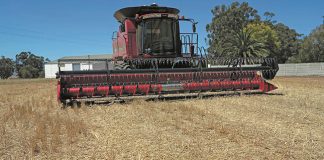The case, which has been ongoing since 2004, saw Agri SA argue that mining company, Sebenza in Mpumalanga, had its coal rights expropriated by the state. Sebenza had old order mineral rights which it hadn’t converted into new rights in terms of the new MPRDA, because the company was insolvent. It conceded the rights to Agri SA. The Constitutional Court ruled that expropriation did not take place since the state had not taken ownership of the rights, but merely took custodianship.
The court also argued that Sebenza did not hold the rights in the first place since it had neglected to convert them to new order rights. Nic Opperman, director of natural resources at Agri SA, said it was still in the process of reviewing the judgement and had not ruled out the possibility of appealing. “I think this was a responsible judgement and the door for appeal is not closed. This judgement was specific to this case and there is still an opportunity to prove expropriation in similar cases,” said Opperman.
He explained that the court viewed the 12-month window period that Sebenza was exclusively afforded to convert its rights as in kind compensation. “This further rules out expropriation,” Opperman said. He said the judgement took on a dangerous stance as it could imply that the state could take what it wanted under the disguise of custodianship. TAU SA disagreed with the ruling and said the state did acquire the rights and was now handing it out “left, right and centre”.
“Despite the word play which the court used to determine whether mineral rights were expropriated or not, the practical reality is that landowners lost their rights to the state,” said Louis Meintjes, TAU SA president. Constitutional law expert Prof Dirk Kotzé said the state taking custodianship of resources was an exercise that happened in most countries. “Either way, it is not as if the farmer has lost out because the price he paid for the land did not take into account minerals underground. If it was something a farmer spent money on producing and it was taken away, then it would be a different story.”
He said the bigger issue was that the judgement did not give any explicit clarity on what happened when a farmer’s land was being prospected and whether he would be compensated for a loss of productivity. “As it stands now, the government is supposed to negotiate with the farmer and come to an agreement. But this does not always happen and there are many examples of farms that have gone out of production as a result of mining,” Kotzé said.
Meanwhile, the Department of Mineral Resources (DMR) welcomed the judgement and said it would provide certainty in the mining industry. “The Agri SA case has always been identified by some in the investor community as a risk to investment in the mining sector. The judgement brings closure to this perception and opens an avenue for investor appetite,” said Susan Shabangu, DMR minister.











